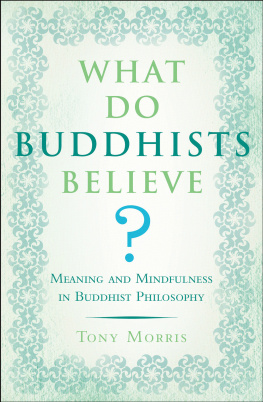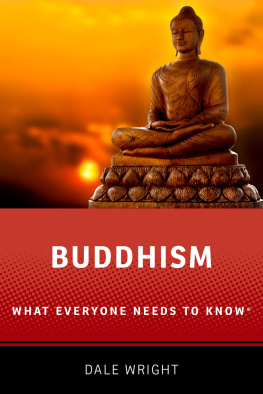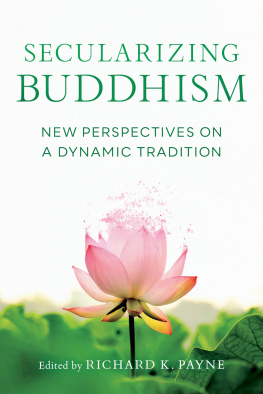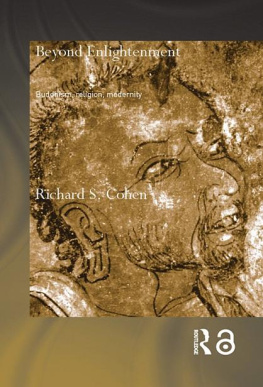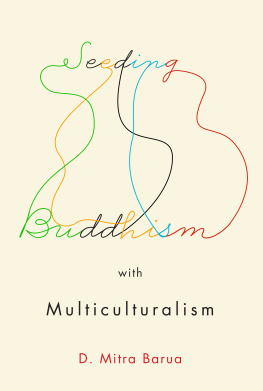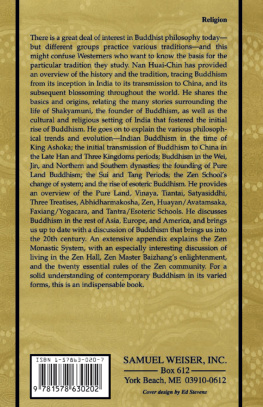American Dharma
American Dharma
Buddhism Beyond Modernity
ANN GLEIG
Yale UNIVERSITY PRESS
NEW HAVEN & LONDON
Copyright 2019 by Yale University.
All rights reserved.
This book may not be reproduced, in whole or in part, including illustrations, in any form (beyond that copying permitted by Sections 107 and 108 of the U.S. Copyright Law and except by reviewers for the public press), without written permission from the publishers.
Yale University Press books may be purchased in quantity for educational, business, or promotional use. For information, please e-mail (U.K. office).
Set in Minion type by Newgen North America, Austin, Texas.
Printed in the United States of America.
Library of Congress Control Number: 2018943194 ISBN 978-0-300-21580-9 (hardcover : alk. paper)
A catalogue record for this book is available from the British Library.
This paper meets the requirements of ANSI/NISO Z39.48-1992 (Permanence of Paper).
10 9 8 7 6 5 4 3 2 1
This book is dedicated to my first lineage: My nan, Annie Kennedy Walters (19141994) and my mum, Ann Gleig the three Annies
Contents
Acknowledgments
Because that exists, this exists... There are few things like writing a book to convince one of the basic insight of the Buddhist concept of dependent-origination: the mutual dependence of phenomena. I owe an immense debt of gratitude to the many practitioners who generously gave their time to be interviewed and, in many cases, provided important feedback on the chapters in which they are featured. Whether named in these pages or not, each one was essential in forming my understanding of current developments in American Buddhism. In particular, I thank Martin Aylward, Klia Bassing, Tara Brach, David Chapman, Jennifer Hawkins, Eleanor Hancock, Vince Horn, Josh Korda, Mushim Patricia Ikeda, Sumi Loundon Kim, Tenku Ruff, La Sarimento, Lama Karma Justin Wall, Gina Sharpe, Kate Lila Wheeler, and Larry Yang. I also acknowledge Michael Stone (19742017) and Aaron Lee (19832017). Each of them significantly affected the landscape of American Buddhism, and their tragic early deaths are a great loss for the sanghas they nurtured.
I am grateful to my colleagues Brooke Schedneck, Elizabeth Williams-Oerberg, and Jane Compson for their helpful feedback on different chapters in this book. I am grateful also to Cristina Rocha, Martin Baumann, and Jovan Maud, the editors at the Journal of Global Buddhism, for permission to reproduce my research and for the constructive feedback I have received from them. From the University of Central Florida, I am appreciative of Claudia Schippert for teaching me how to say no to other projects so I could stay focused on this one, and my undergraduate students who helped with interview transcriptions: Kelsi, Hania, Vanessa, and Samantha. I am also grateful to friends and mentors who supported me during the emotional vicissitudes that preparing a manuscript entails: Harvey Aronson, Gina Crago, Anne C. Klein, Anna Snow, Terry Stevens, Sabine OLaughlin, Willem Overwijk, Lianne Wynne, Claire Villarreal, and Amanda Yoder. As well as the Viau familymy wonderful in-lawswho never complained about my missing family events because I had to work on this manuscript.
I offer my deepest gratitude to Jennifer Banks, my editor at Yale University Press. Jennifer saw the potential in the project when it was in its very infancy. Her confidence in it kept me going through the periods of doubt and insecurity that inevitably accompany ones first monograph, and her astute editorial suggestions made the chapters cleaner and more cohesive. I also thank Heather Gold, assistant editor at Yale University Press, for her patience with my many email requests, and Jessie Dolch for her absolutely meticulous copyediting. The attention and care she put into this manuscript were extraordinary. Extra special thanks are due to Franz Metcalf, without whom there would be no manuscript. Franz was the first person to encourage me to expand my research on Buddhism in postmodernity into a book-length project, and his thorough, thoughtful review of the first draft was indispensable. Most of all, though, I thank and recognize Jeanine Viau, my beloved, whose love, care, and patience make all things possible for me. She is my refuge.
American Buddhism After Modernity
Introduction
A beautiful white blonde female, eyes closed, face tilted upwards, radiating joy and tranquility, decorated the cover of the February 3, 2014, edition of Time magazine. Across her slender upper body were the words The Mindful Revolution: The Science of Finding Focus in a Stressed Out, Multitasking Culture. If this announcement on a national magazine known for its iconic cultural covers alone did not convince one of the arrival of mindfulness in North America, the accompanying article surely did. The Mindful Revolution interweaved the authors experience of an eight-week mindfulness-based stress reduction (MBSR) program with a discussion of the increasing adoption of mindfulness meditation in a range of secular spheres such as medicine, education, business, and the military. It attributed the success of mindfulness to its scientific legitimation and its strategic marketing, revealing that, at the last count, Americans had spent $4 billion on mindfulness-related medicine. Time was just one of many popular news sources, including the New York Times, to cover the mindfulness boom, suggesting that mindfulness was already well on its way to becoming established in American mainstream life.
One might imagine that American Buddhists would celebrate the endorsement of mindfulness in one of their nations most established magazines. After all, the revolution had been pioneered by some of A large part of the discord was due to the fact that almost a decade earlier the August 4, 2003, edition of Time had also featured a slim white blonde, accompanied by the caption The Science of Meditation, which proclaimed meditations health and fitness benefits. Taken together, the two covers gave a clear message of what type of Americans practiced mindfulness and what they practiced it for.
In response, Joanna Piacenza questioned why Time had chosen twice to represent mindfulness and, by association, Buddhism with an image of a white American when the majority of American Buddhists were actually Asian Americans. She declared this to be the result of meditation retreats being so expensive that only affluent white people could afford them. Distinguishing between those who were born into Buddhist families and those who converted to Buddhism, she accused the latter elite group of superficially appropriating Buddhism. As she put it, In Western modernity, Buddhism has become something that you can fit into your life, not something you shape your life around. This new approach to Buddhism negated the wider institutional, ethical, and communal dimensions of the religion. Lamenting this thoroughly truncated vision, Piacenzas parting line was, I suppose the question is, then, do you want the whole story?
Responses to the success of mindfulness in mainstream North America suggest that in fact many do want the whole story. Articles heralding its scientifically proven benefits have been followed by other commentaries expressing concern at various aspects of its seculariza Critics draw on distinctions between right and wrong mindfulness as decreed by the Pali Canon and differentiate between sincere individual intentions and the institutionalization of self-disciplines as informed by Michel Foucault. These unusual bedfellows of religious conservatives and critical theorists, premodern and poststructuralist perspectives, are united by a suspicion of the distinctively modern discourses that have overtaken Buddhism.
Indeed, resistance to the mindfulness movement and the American meditation-based convert Buddhist communities that it grew out of is part of a wider critique of Buddhist modernism, a historically unprecedented form of Buddhism that arose out of the encounter between traditional Buddhism and Western modernity under colonialism. As David McMahan has traced, Buddhist modernism is the result of modernization and reform processes that have been happening in Asia and the West for more than a century. It has been shaped by an engagement with the major discourses of Western modernityscience, Romanticism, and liberal Protestantismand is marked by a number of distinctively modern values such as individuality, democracy, pluralism, and the privileging of meditation experience as the core of the tradition.
Next page

